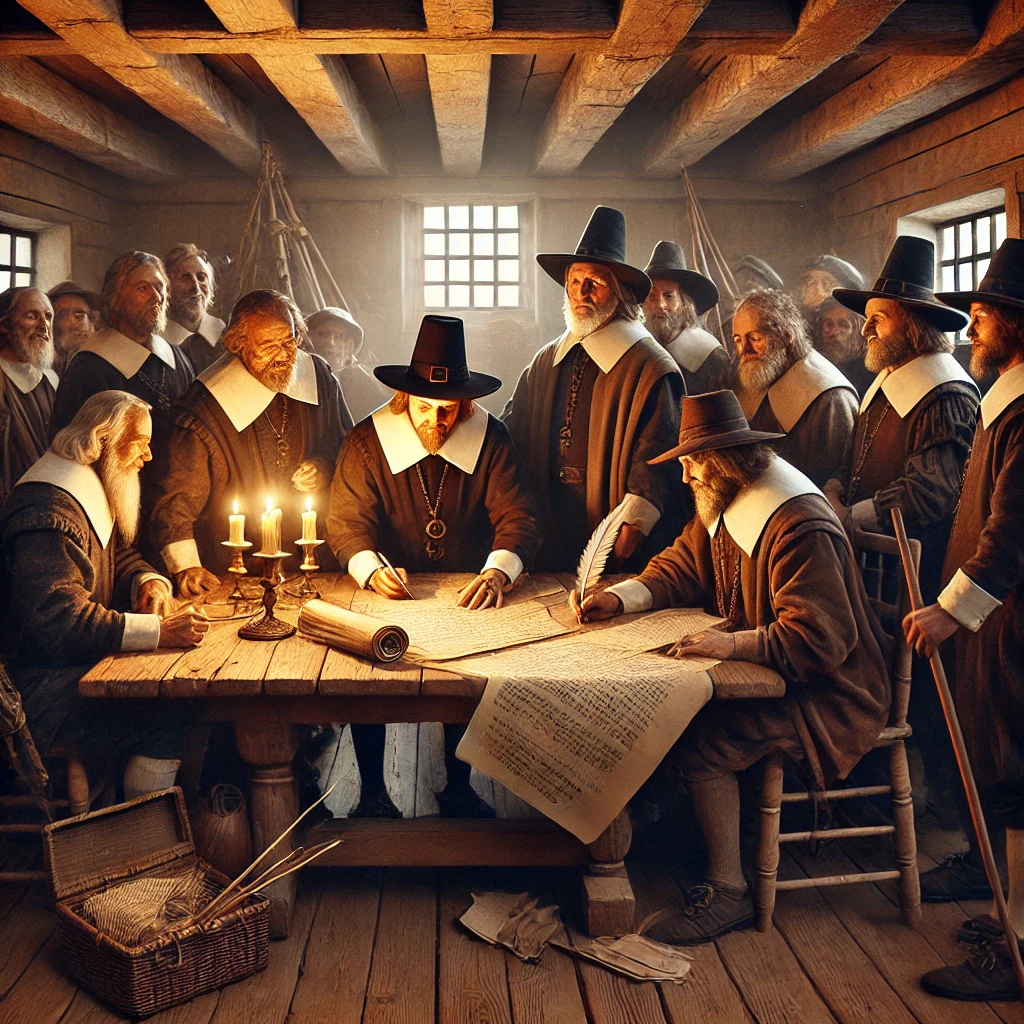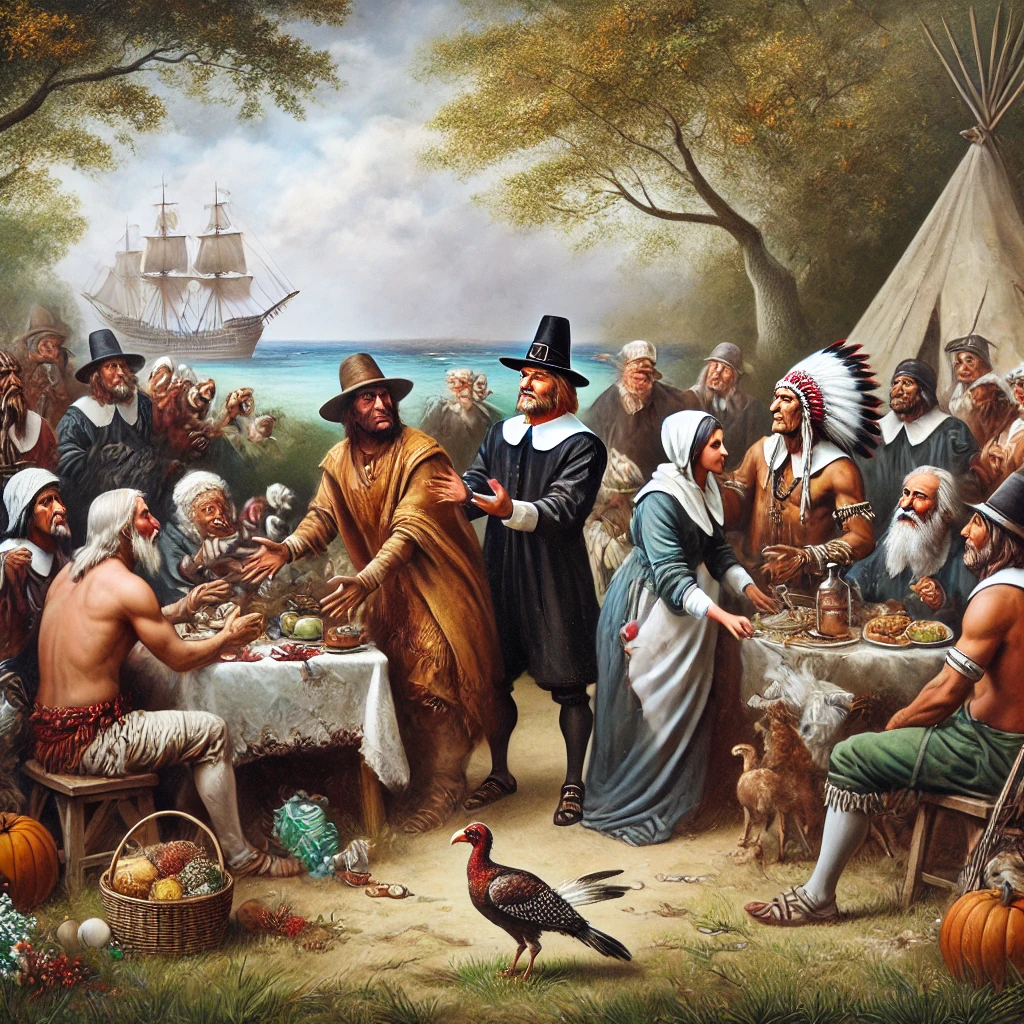On November 21, 1620, aboard the Mayflower, 41 male passengers signed a historic agreement now known as the Mayflower Compact. This brief yet profound document was drafted and signed while the ship anchored off the coast of present-day Massachusetts. The Pilgrims, who were seeking religious freedom, found themselves outside the bounds of their original charter. To address this uncertainty and maintain order, they drafted the Compact to establish a basic form of governance rooted in mutual consent and cooperation. It marked the first written framework for self-government in what would become the United States.
The Compact was a simple agreement but revolutionary for its time. It bound its signatories to form a “civil body politic” to enact “just and equal laws” for the good of the colony. This commitment to collective decision-making set a precedent for governance that would resonate through American history.

The Significance in Historical Context
The Mayflower Compact was groundbreaking in its assertion of self-governance and rule by mutual consent. At a time when monarchies dominated Europe and subjects had little say in their governance, the Compact represented a bold step toward democratic principles. It reflected the Pilgrims’ religious and communal values, emphasizing cooperation and accountability to one another rather than reliance on a distant authority.
The document also underscored the challenges of establishing a society in an unfamiliar and often hostile environment. The settlers knew their survival depended on unity and shared purpose, and the Compact provided a framework to address disputes and organize their efforts.

Lasting Impact on Modern Governance
The Mayflower Compact’s legacy can be seen in the development of democratic principles in the United States. Although the Compact itself was relatively short-lived, as it was replaced by other colonial charters and governance structures, its spirit of self-rule and consensus-building became a cornerstone of American political thought. The Compact inspired later foundational documents, including the Articles of Confederation and the U.S. Constitution.
Modern concepts like participatory democracy, equality under the law, and the social contract echo the principles enshrined in the Compact. Its influence extends beyond the United States, serving as an early example of how individuals in diverse and challenging circumstances can come together to create a government that reflects their shared values.

The Mayflower Compact in Today’s World
Today, the Mayflower Compact remains a symbol of resilience, unity, and the pursuit of justice. Its anniversary serves as a reminder of the importance of collaboration and the responsibilities of citizens to their community. It also underscores the enduring relevance of the principles of self-determination and democratic governance.
As we reflect on this historic agreement, it invites us to consider how foundational ideas from the past continue to shape our societies and inspire efforts toward fairness, inclusion, and collective progress. From classrooms to political arenas, the Mayflower Compact stands as a testament to the power of shared vision and cooperation in building a better future.
